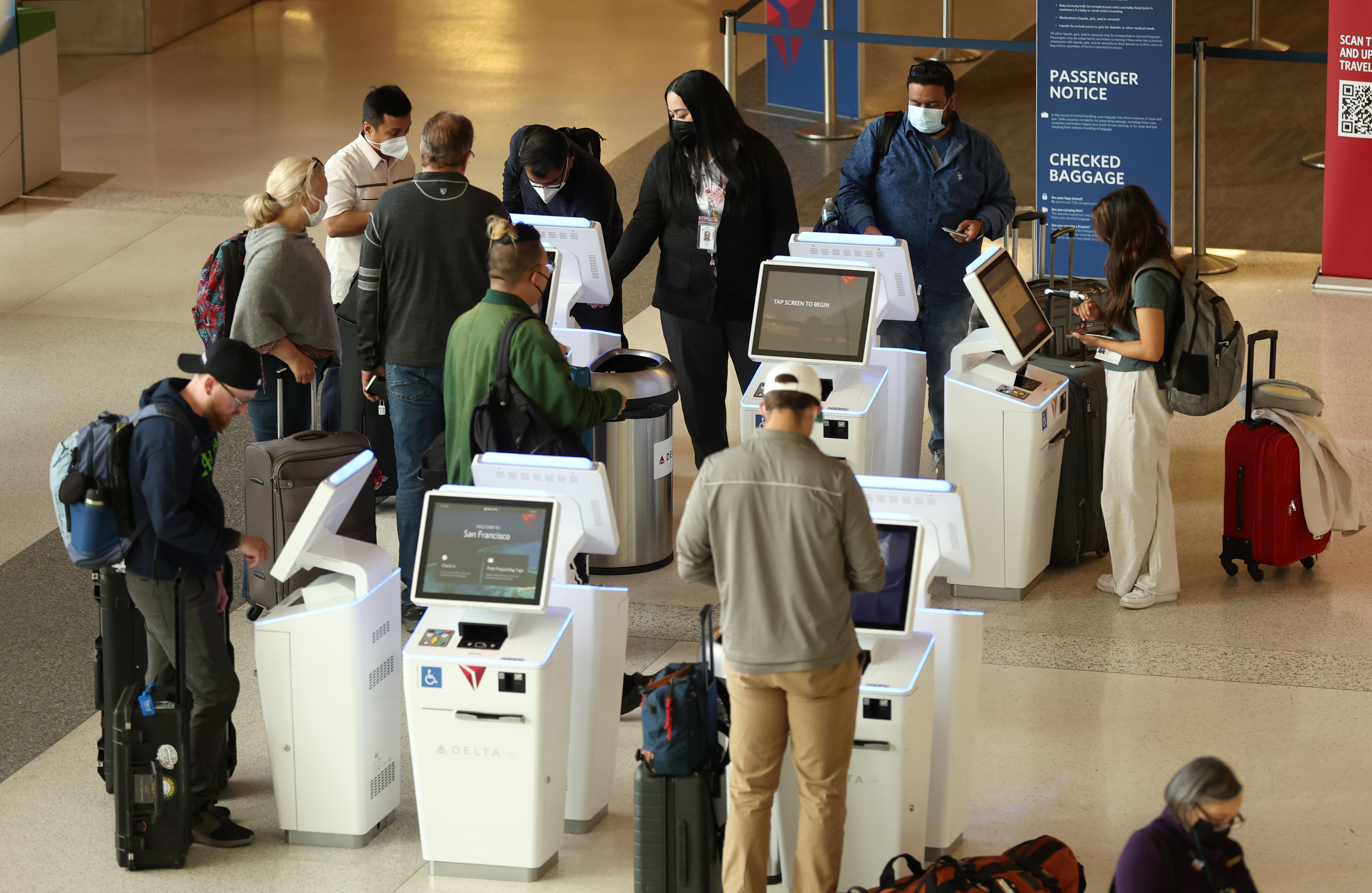Delta Says Ticket Sales Are At Pre-Pandemic Levels As It Cancels Thousands Of Flights
Everything is more expensive, and flying is no exception.
Delta airlines announced ticket bookings are back up to pre-pandemic levels just days after a hectic holiday weekend that saw thousands of flight delays and cancelations. With Delta and other airlines preparing for more cancelations on the horizon and fuel (for airplanes as well as the family car) as expensive as ever, this summer's travel season is sure to be a mess.
Delta said in its securities filing Wednesday that the airline made $12.5 billion in the second quarter of 2022, matching pre-pandemic demand from three years ago, according to the New York Times:
"The business is in a very strong position," Delta's chief executive, Ed Bastian, said at an investor conference on Wednesday. "The recovery is exceeding my expectations, I think probably all of our expectations."
Airlines are enjoying a resurgence as many people spend less on goods and more on services like travel and restaurant meals. Fast-rising fuel costs and high demand have contributed to huge increases in fares, but many customers appear to be willing to pay more for tickets because they are eager to go on vacations.
Southwest Airlines and JetBlue Airways issued similarly rosy updates last week. Higher revenue would "more than offset" rising fuel costs, Southwest said. JetBlue said that ticket bookings were exceeding its expectations and that it expected revenue for the second quarter to be "at or above" the high end of its previous forecast.
But airlines may not be able to reap too much from these good times. They are at a breaking point as well. Delta specifically said last week it would be canceling 100 flights a day between July 1 and August 7, primarily in the U.S. and Latin American markets. Even that might be a soft estimate. American airline carriers canceled 2,500 flights over the four-day Memorial Day weekend due to staffing shortages, with delays stretching on for hours, Reuters reports.
Staff shortages are being caused both directly and indirectly by — what else — COVID-19. Our constant companion these last few years is on the rise again, sidelining what few staff members airlines retained after shutdowns drove many to find more stable work. Maybe losing those mask mandates was a bad idea after all. With the current labor crunch, it's harder than ever for airlines to find and train new people in the complex jobs working on, in, or around commercial airliners. A shortage of air traffic controllers and TSA agents also hasn't helped.
All of this has led, of course, to higher airfares, which is certainly helping keep the airlines ahead of those rising fuel costs. So far, wander-lusting Americans are willing to pay top-dollar for a vacation (with the possibility of getting stranded in the process), but as the price of everything continues to rise, one has to wonder how much longer the system can hold.
